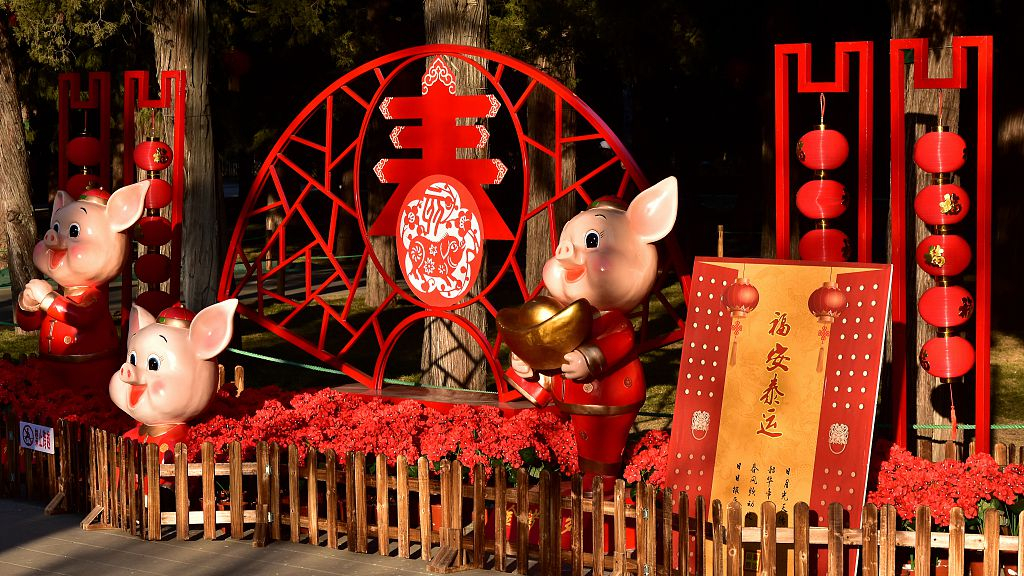As China has started counting down to the lunar New Year, many cities are busy getting ready for the occasion. The parks in Beijing are not exceptional. Many have already put up traditional Chinese decorations to welcome the forthcoming Chinese New Year as well as numerous revelers during the holiday.
The traditional decorations of the following parks in Beijing will give you a taste of an authentic feel of Chinese New Year.
Jingshan Park
From January 24 to February 19, Jingshan Park is holding a series of events where visitors can overlook the Forbidden City, make New Year's resolutions, experience traditional customs and taste local snacks.
Various typical Chinese New Year ornaments, such as red lanterns and Chinese knots, have brought a festive spirit to the park, attracting many to come and visit.
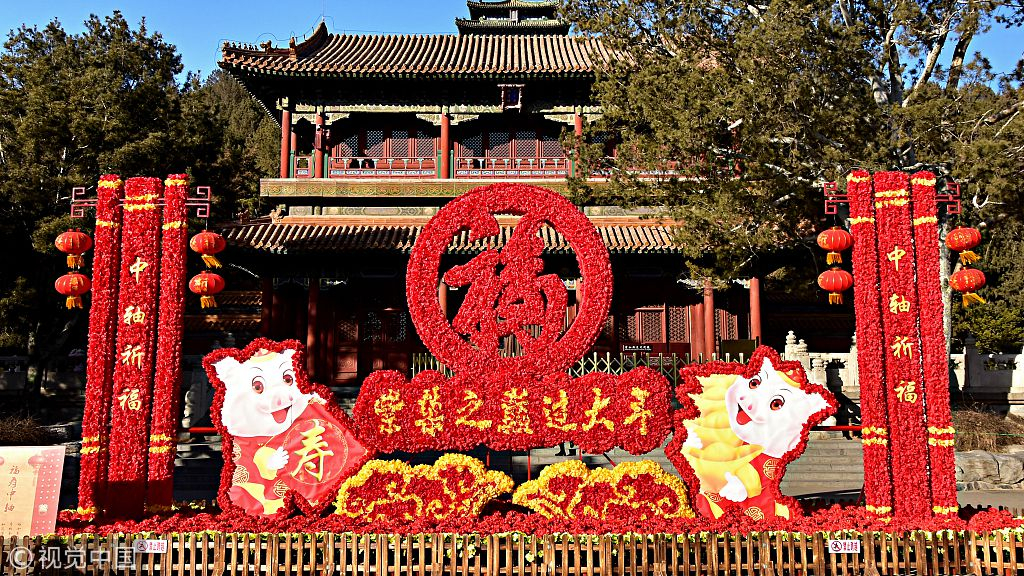
Jingshan Park puts up Chinese New Year decorations. /VCG Photo
Jingshan Park puts up Chinese New Year decorations. /VCG Photo
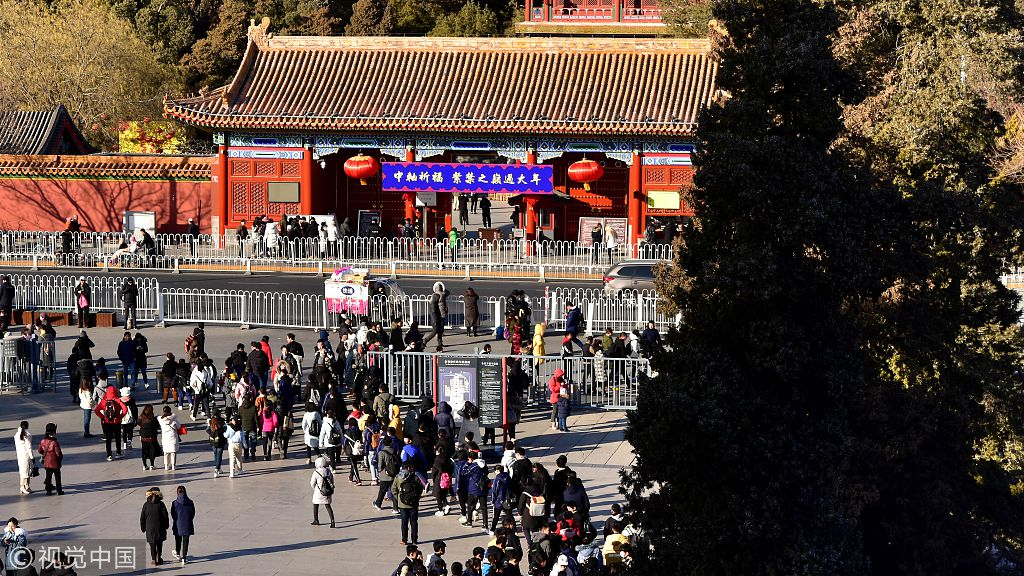
Visitors flock to Jingshan Park on January 25. /VCG Photo
Visitors flock to Jingshan Park on January 25. /VCG Photo
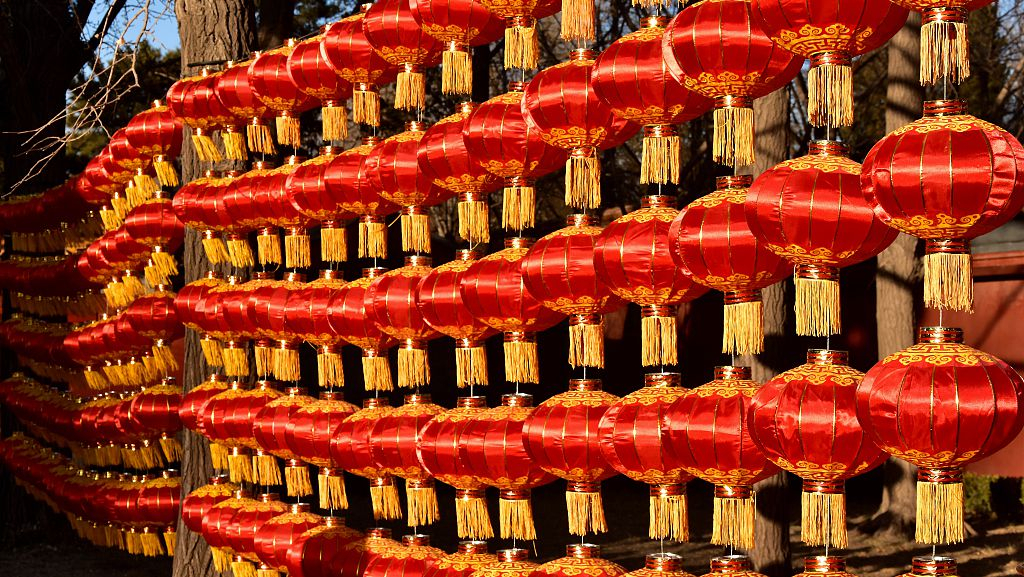
Rows of lanterns hang on the trees in Jingshan Park. /VCG Photo
Rows of lanterns hang on the trees in Jingshan Park. /VCG Photo
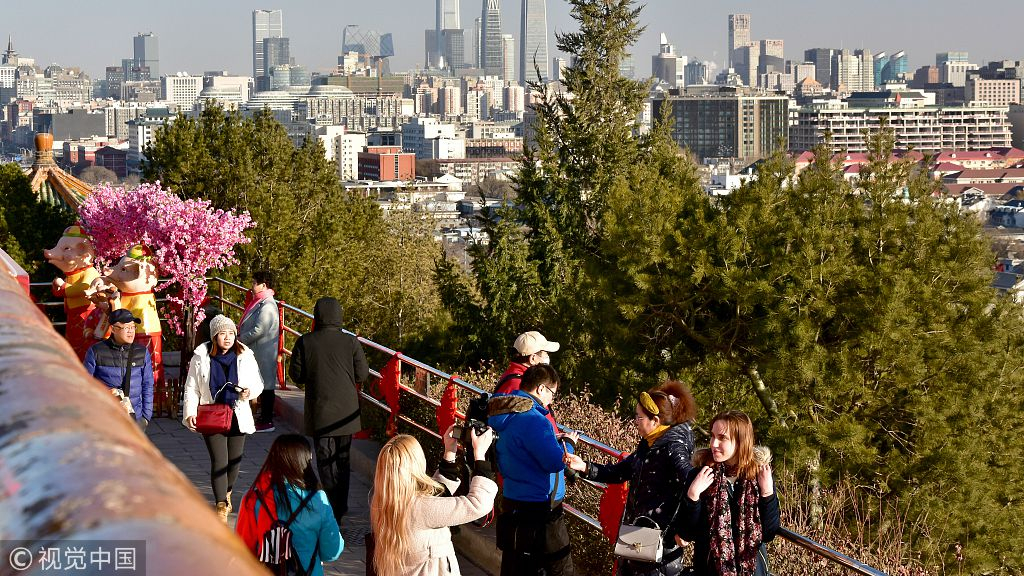
Visitors wander and take pictures in Jingshan Park. /VCG Photo
Visitors wander and take pictures in Jingshan Park. /VCG Photo
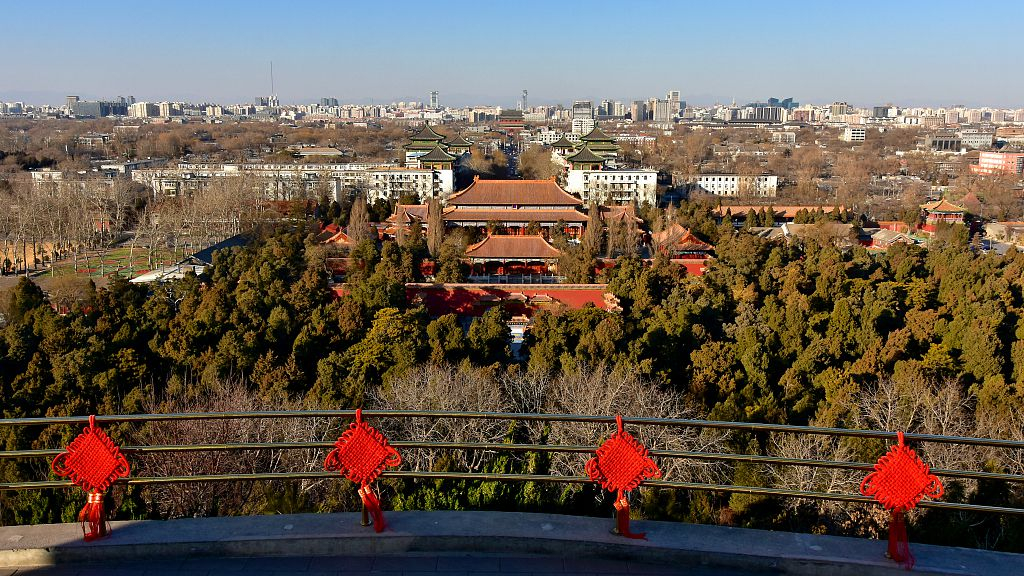
Chinese knots tied to the handrails of Wanchun Pavilion, Jingshan Park. /VCG Photo
Chinese knots tied to the handrails of Wanchun Pavilion, Jingshan Park. /VCG Photo
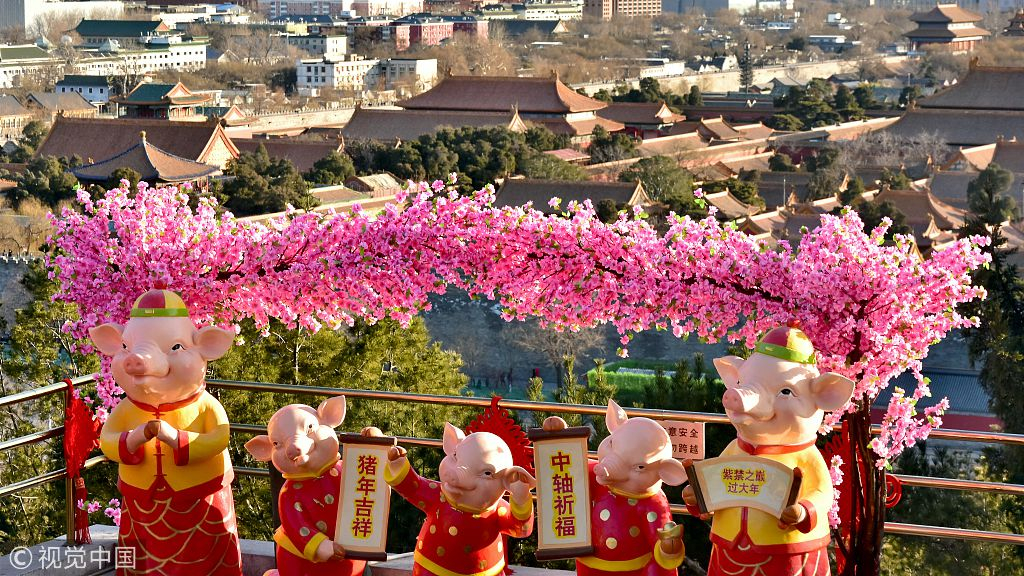
Models of cartoon pigs in Chinese traditional costumes. /VCG Photo
Models of cartoon pigs in Chinese traditional costumes. /VCG Photo
Located in the city center, Jingshan Park once served as an imperial garden during the Yuan (1271-1368), Ming (1368-1644) and Qing (1644-1911) dynasties where royal families spent their leisure time.
As it faces the north gate of the Forbidden City, visitors can get access to the panorama of the royal court from the peak of the hill. Also, Wanchun Pavilion inside the park is a hot place for photographers to shoot the sunrise in New Year's morning.
The Temple of Earth
The Temple of Earth, also known as Ditan Park, in Dongcheng District, has put on festive decorations for its 34th Temple Fair, or Miaohui in Chinese, a traditional folk activity in China.
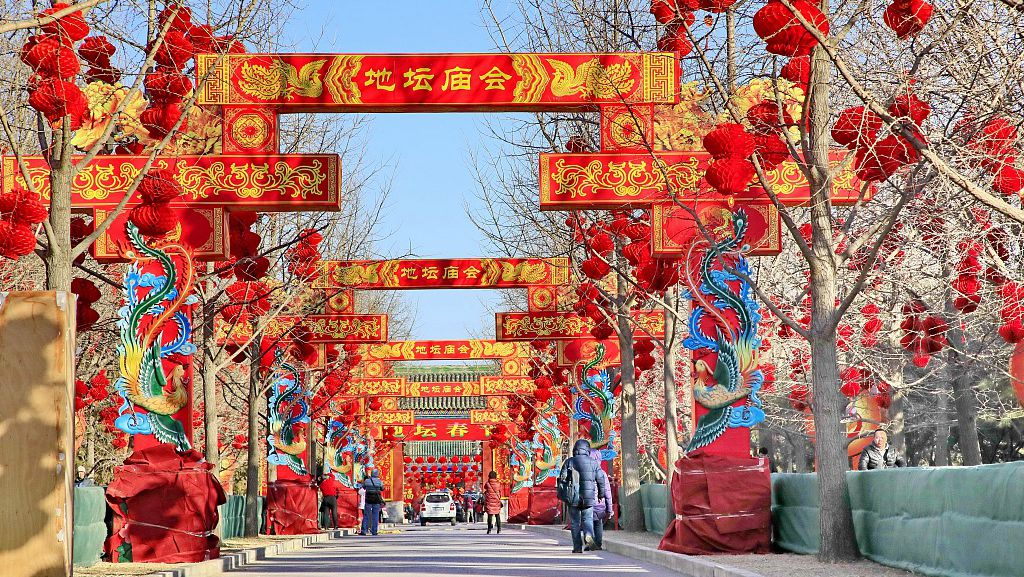
The Temple of Earth puts up decorations for the upcoming temple fair. /VCG Photo
The Temple of Earth puts up decorations for the upcoming temple fair. /VCG Photo
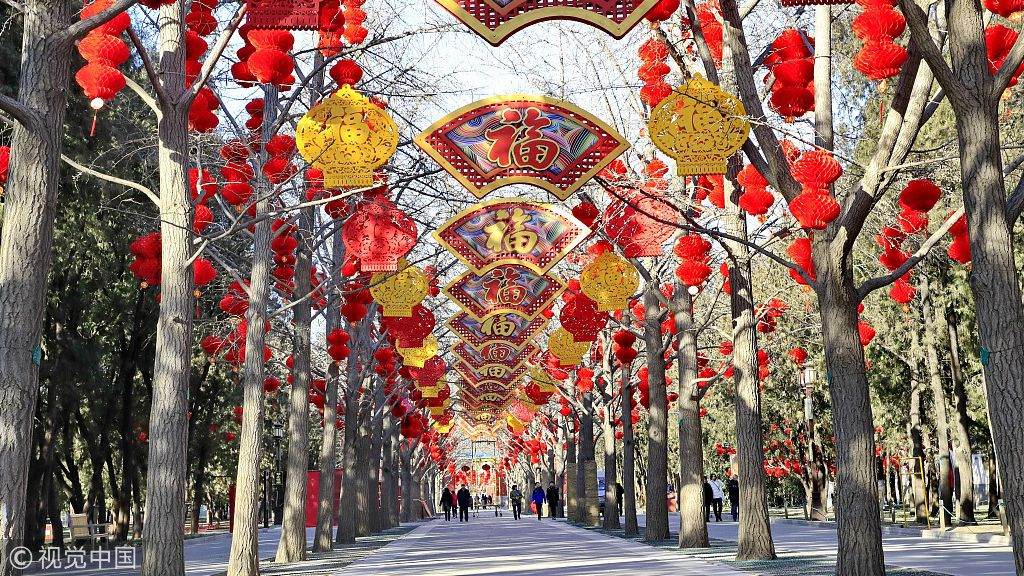
Chinese New Year decorations with Chinese character "Fu", meaning "prosperity" /VCG Photo
Chinese New Year decorations with Chinese character "Fu", meaning "prosperity" /VCG Photo
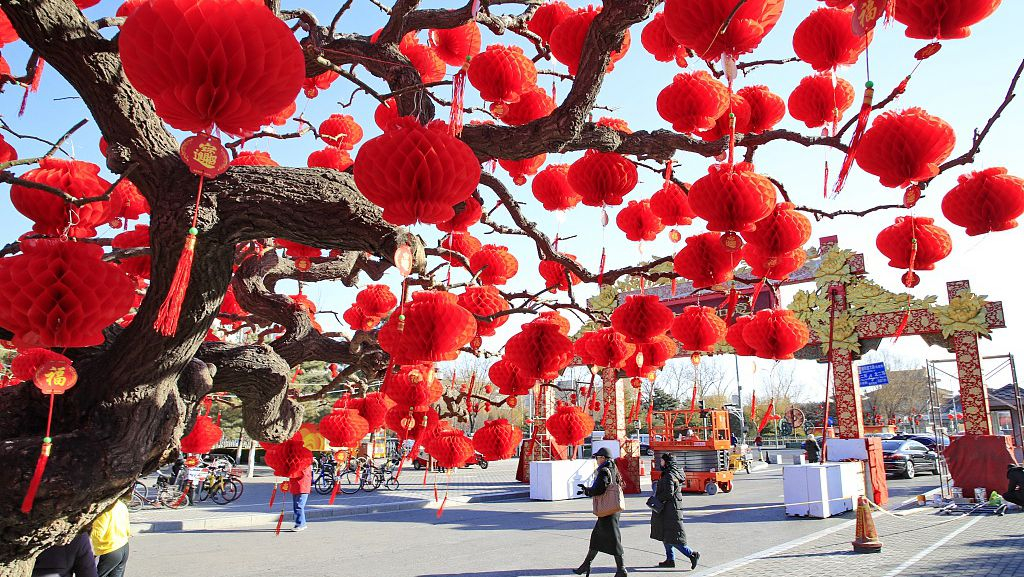
Paper lanterns hang on the trees in the Temple of Earth. /VCG Photo
Paper lanterns hang on the trees in the Temple of Earth. /VCG Photo
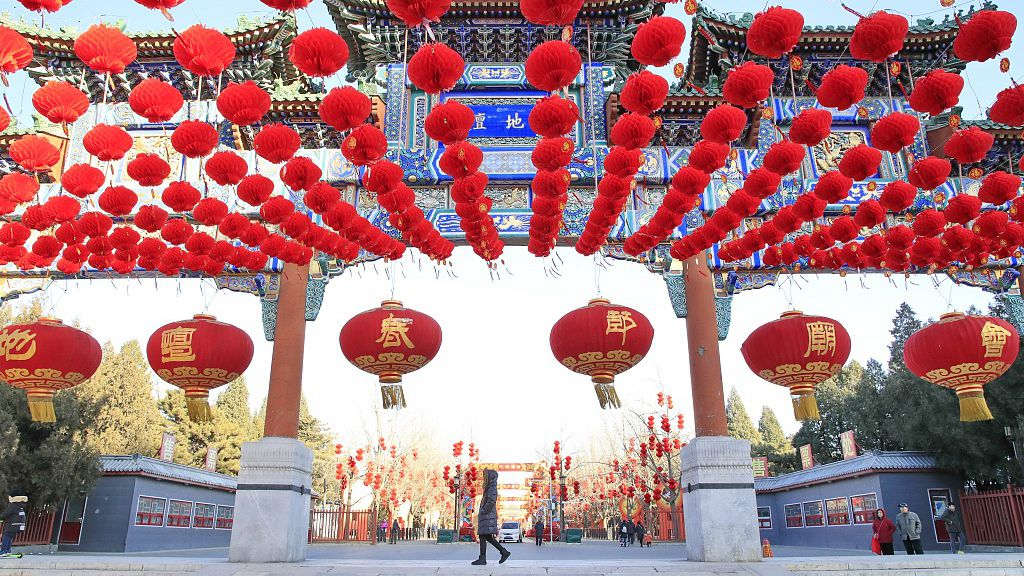
Chinese traditional lanterns hang at the entrance. /VCG Photo
Chinese traditional lanterns hang at the entrance. /VCG Photo
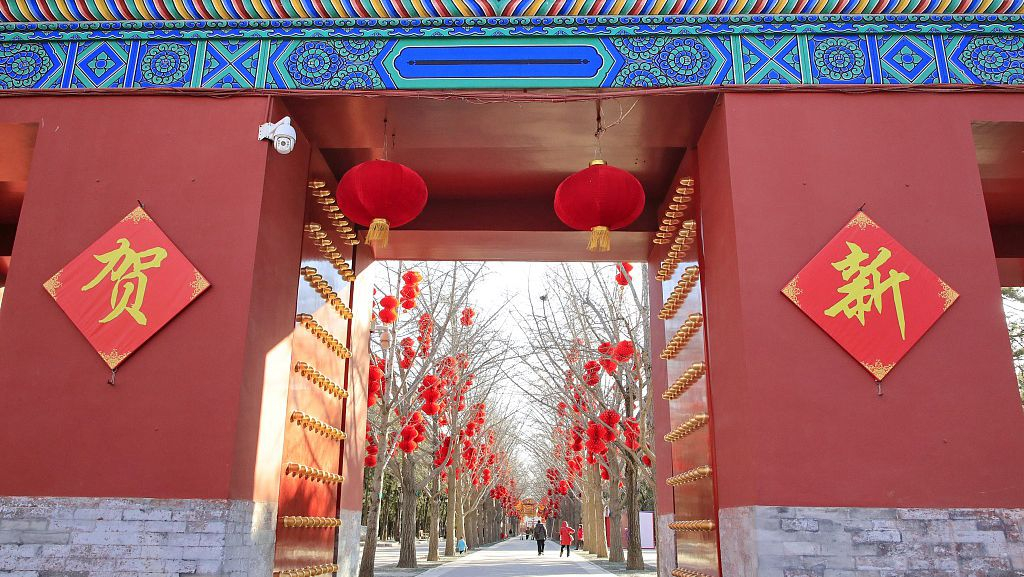
Chinese New Year decorations in the Temple of Earth. /VCG Photo
Chinese New Year decorations in the Temple of Earth. /VCG Photo
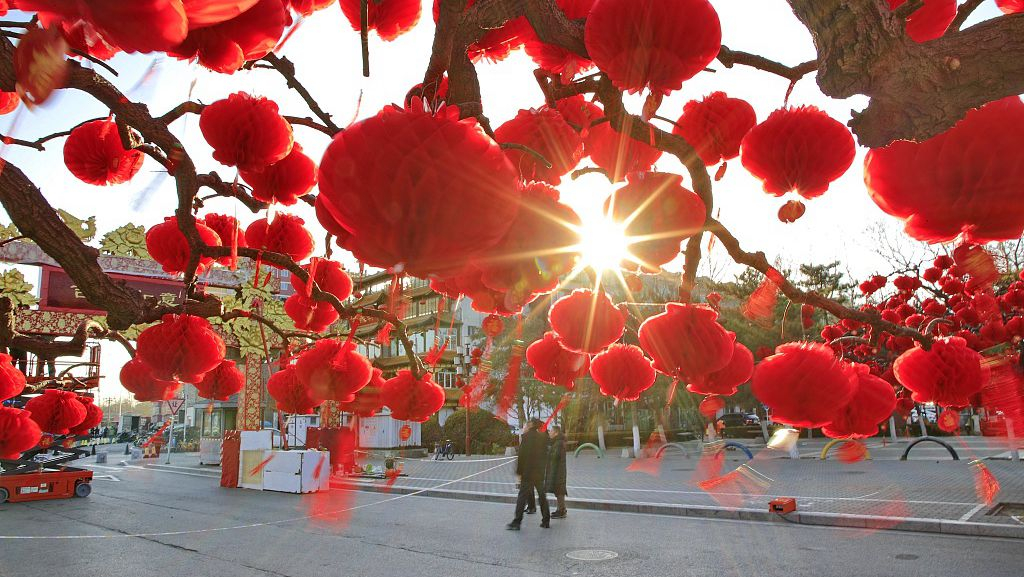
Red paper lanterns hang on the trees. /VCG Photo
Red paper lanterns hang on the trees. /VCG Photo
As one of the most popular temple fairs in Beijing, the Ditan Temple Fair is scheduled to open on February 5, the first day of lunar January and lasts for five days until February 9, each day from 8:30 a.m. to 5:00 p.m. It is themed to exhibit innovation through its cultural inheritance, and present its historical achievement as well as the promising future.
Badachu Park
Badachu Park in northwestern Beijing is about to finish decorating for its upcoming 6th Temple Fair which also starts from February 5. The decorations highlight the traditional Chinese characteristics by making good use of various elements, such as lanterns, paper-cuts and calabash, all in the colors of red and golden yellow, symbolizing prosperity and good luck.
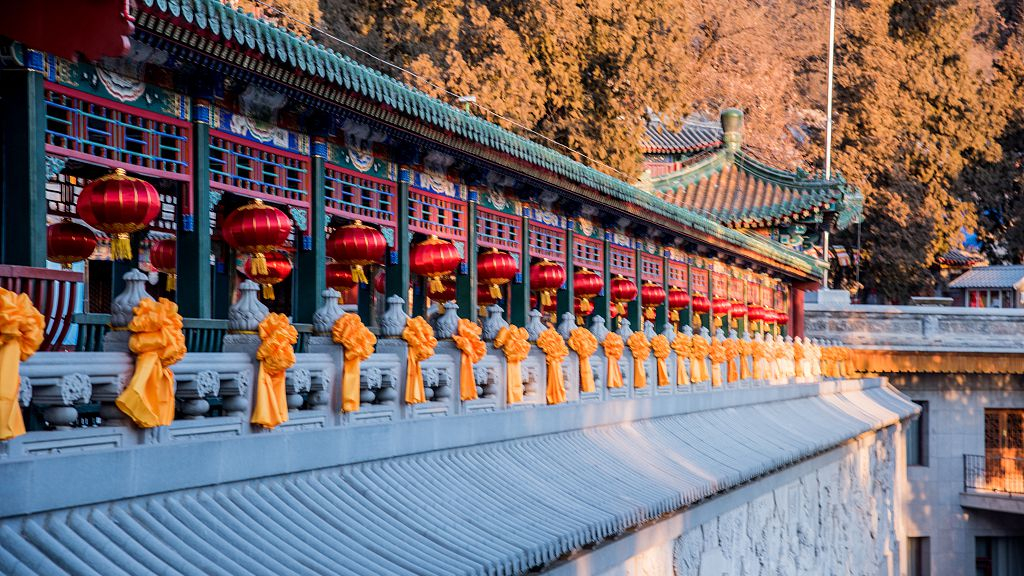
Festive decorations in Badachu Park. /VCG Photo
Festive decorations in Badachu Park. /VCG Photo
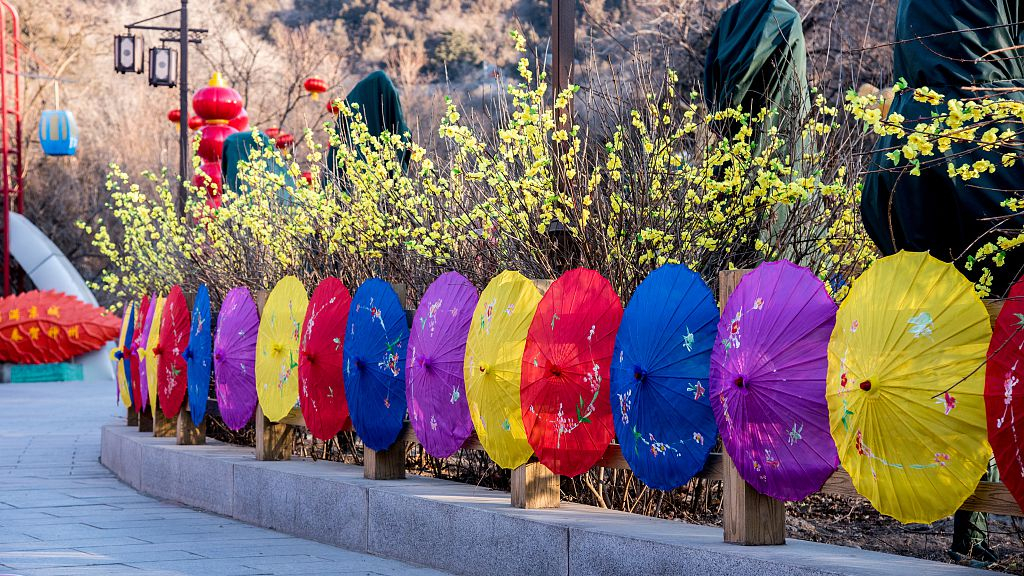
Multi-colored Chinese oil-paper umbrellas along the path. /VCG Photo
Multi-colored Chinese oil-paper umbrellas along the path. /VCG Photo
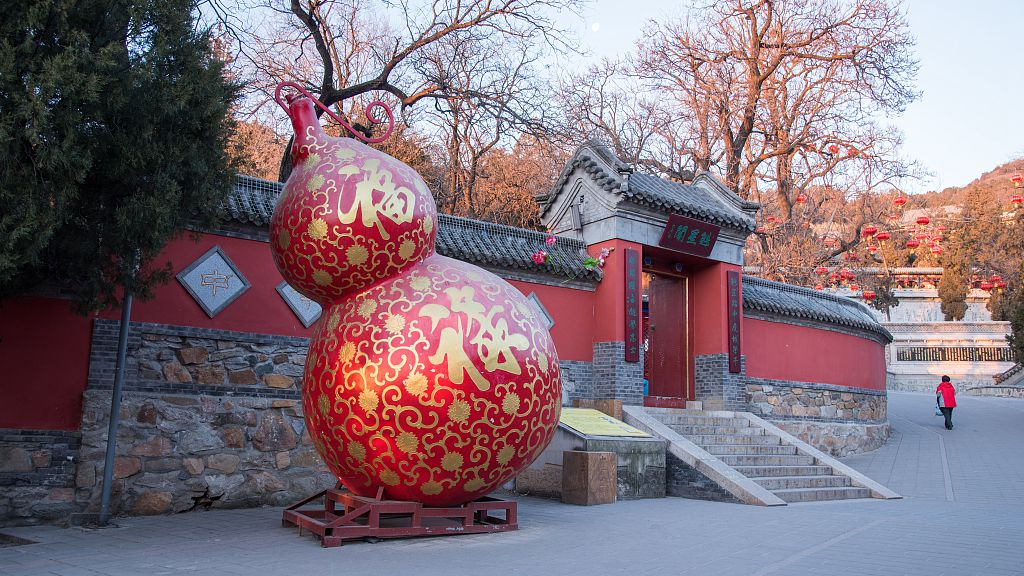
A giant model of red calabash with Chinese characters "Fu" and "Lu", respectively meaning "prosperity" and "status". /VCG Photo
A giant model of red calabash with Chinese characters "Fu" and "Lu", respectively meaning "prosperity" and "status". /VCG Photo

Traditional lanterns hang over people's heads. /VCG Photo
Traditional lanterns hang over people's heads. /VCG Photo
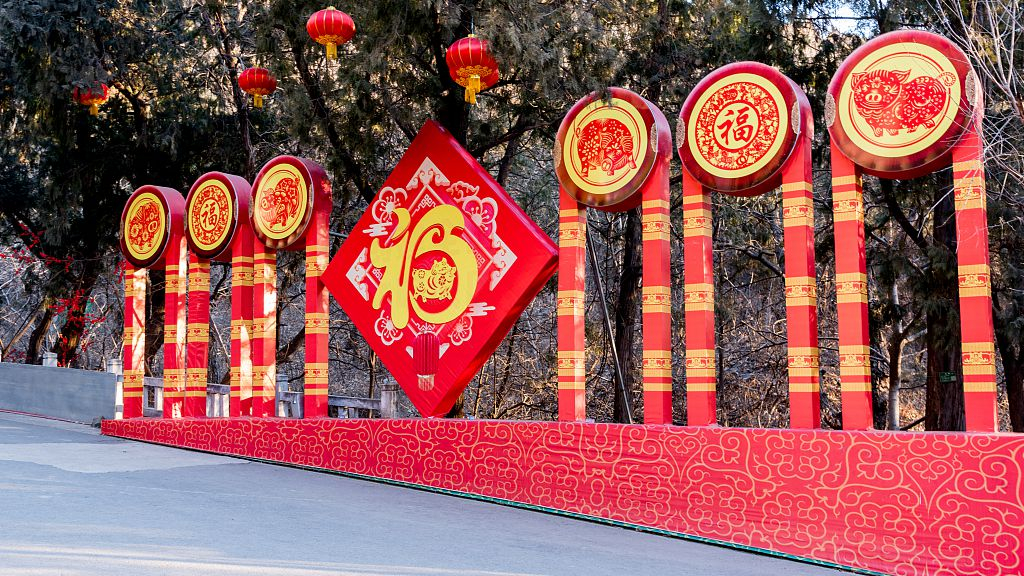
Spring Festival decorations featuring Chinese paper-cuts. /VCG Photo
Spring Festival decorations featuring Chinese paper-cuts. /VCG Photo
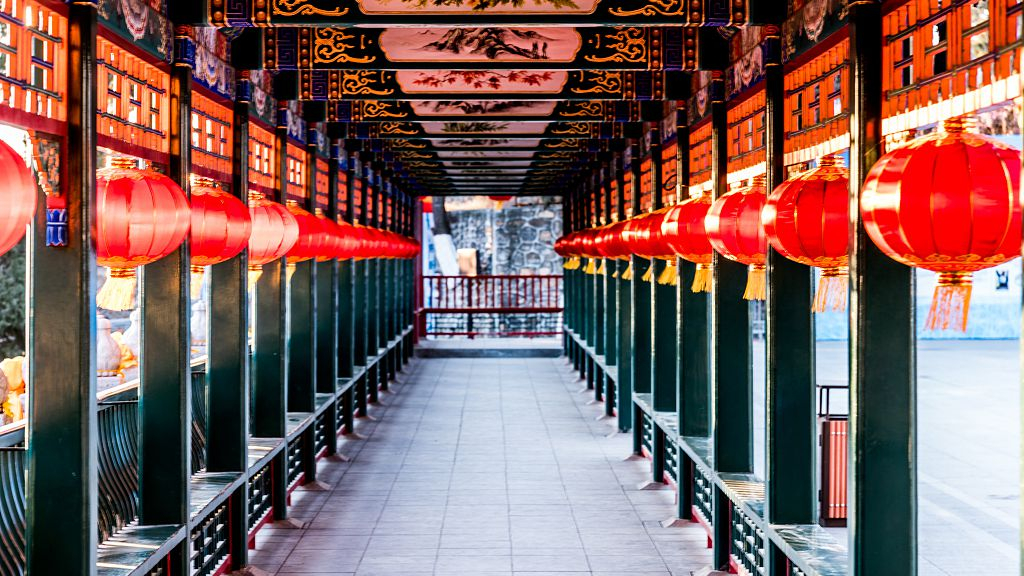
Traditional Chinese lanterns in Badachu Park. /VCG Photo
Traditional Chinese lanterns in Badachu Park. /VCG Photo
Badachu Park is a popular tourist attraction in Beijing, characterized by its long history, old temples and beautiful scenery. It is also called Eight Great Sites Park. As indicated by the name, there are eight Buddhist temples and nunneries scattered in the park. Visitors often take a stroll from one temple to another, admiring the delightful scenery, ancient pavilions and rare trees.
(Cover Photo: Chinese New Year decorations of cartoon pigs in Jingshan Park, Beijing /VCG Photo )

